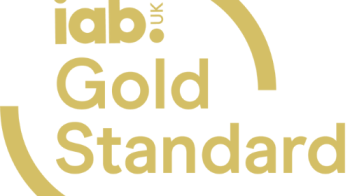Code of conduct on competition compliance
Posted on Tuesday 22 July 2025 | IAB UK
Introduction
The purpose of this Code of Conduct is to ensure that all members of the Internet Advertising Bureau (IAB) comply with UK competition law. This Code of Conduct outlines the principles and practices that must be observed in order to prevent anti-competitive behaviour and promote a fair and open market within the digital advertising industry.
This Code of Conduct applies to all members of the IAB, including IAB employees, directors, and associated persons who act on behalf of the IAB. It is essential that everyone understands and follows these guidelines to maintain compliance with competition law.
The IAB is committed to upholding the highest standards of competition law compliance. We recognise the importance of fair competition in fostering innovation, efficiency, and consumer welfare. This Code of Conduct will be reviewed and updated regularly to ensure it remains relevant and effective.
Understanding Competition Law and Key Principles
What is competition law?
Competition law is designed to protect businesses and consumers from anti-competitive practices. Put simply, ensuring that our markets are competitive drives businesses to enhance productivity and foster innovation, which is ultimately beneficial for consumers. Compliance with competition law is therefore crucial to maintaining a fair and competitive market environment. Non-compliance with competition law can result in severe penalties, including substantial fines of up to 10% of worldwide annual turnover, director disqualification, and even criminal sanctions. It can also lead to reputational damage and loss of trust among consumers and industry peers.
What practices are prohibited?
Anti-competitive activities can be broadly split into three main categories:
- Anti-competitive agreements: These are agreements between businesses that prevent, restrict, or distort competition. This includes any form or collusion or coordination that undermines market competition.
- Abuse of dominant position: Conduct by a company with a dominant position in its market that unfairly limits competition. This includes practices that exploit or exclude competitors in a way that harms the competitive process.
- Cartel offences: These involve agreements between competitors to fix prices, limit production, shar markets or rig bids. These practices are illegal and attract the most severe penalties.
Anti-competitive behaviour can take many forms, as set out as follows:
|
Prohibited Conduct |
Definition |
|
Price-fixing |
Agreements between competitors to set prices at a certain level, eliminating competition on pricing. |
|
Market sharing |
Agreements between competitors to divide markets among themselves, such as by geographic area or customer type. |
|
Bid-rigging |
Agreements between competitors on who will win a bid, often by submitting artificially high bids. |
|
Limiting Production or Supply |
Agreements to reduce the quantity of goods or services produced or supplied, to drive up prices. |
|
Collective boycotts |
Agreements to refuse to deal with certain customers or suppliers, or to only deal with them on certain terms. |
|
Sensitive information sharing |
Exchanging commercially sensitive information, such as prices, costs, or strategic plans, which can reduce competition. |
What practices are allowed?
Businesses that are in competition with each other are allowed to engage in legitimate collaboration that does not restrict competition and can provide benefits such as innovation and efficiency. This is what we at the IAB seek to foster among our members. This behaviour includes the following:
|
Permissible Conduct |
Definition |
|
Sharing public information |
Information that is already publicly available and does not give any competitive advantage. |
|
Technical and industry standards |
Developing and sharing standards that improve product interoperability, safety, and sustainability. |
|
Lobbying and public relations |
Joint efforts to influence legislation or public opinion, provided no sensitive information is shared. |
|
Benchmarking and market research |
Sharing anonymised data to understand industry trends and performance without revealing individual company data. |
How competition law affects the IAB
The IAB serves as an industry body for digital advertising, providing a platform for members to collaborate, share knowledge and promote best practices. Given its role, the IAB faces risks of anti-competitive behaviour, particularly in anti-competitive information exchange and cartel behaviour. It’s therefore essential that the IAB operates within the bounds of competition law by implementing measures to mitigate these risks, to maintain a fair and competitive advertising market.
To mitigate these risks, the IAB ensures that it:
- thoroughly reviews and considers membership applications.
- has comprehensive compliance policies which are reviewed and updated regularly.
- provides ongoing training to IAB staff on competition law compliance; and
- has a robust and fair internal reporting mechanism which provides clear channels for reporting suspected breaches of competition law.
Practical do's and don'ts
How to ensure meetings are compliant?
When hosting meeting involving IAB members, it’s important to ensure that the content of discussions remains compliant with competition law. Meetings must only be held by specific personnel based on agendas which are circulated in advance. Minutes must be recorded by the IAB and circulated shortly afterwards. IAB members should only use these minutes and should not make their own records of meetings in any medium.
The IAB may record video-conference meetings, but such recordings must be deleted after 60 days. Private AI tools may be used by members to generate recordings of such meetings, but any other (non-private) AI tools must not be used and should be disabled before the start of any IAB meeting.
The chairperson of any meeting will halt any discussion (before, during or after any meeting) of confidential commercially sensitive information, including (without limitation), concerning prices, discounts or terms of trade.
What information can be shared between members?
The following information can be shared between members:
- Non-confidential information that is in the public domain.
- Technical advertising industry issues including standards, sustainability, and health and safety matters.
- Non-strategic technical or scientific data that benefits the advertising industry and society, such as independent research reports.
- Advertising industry public relations or lobbying initiatives, provided that no sensitive business information is shared.
- Advertising industry standards that promote responsible advertising and improve sustainability and efficiencies.
What information cannot be shared between members?
The following information must not be shared or discussed between members:
- Current or future pricing, or matters affecting prices.
- Company-specific sales information.
- Company-specific cost information.
- Salaries and wages, hiring practices, or limitations on hiring a competitor's employees.
- Commercial planning or strategy information including geographic growth and business expansion or contraction plans.
- Key contract terms, such as any matters relating to specific suppliers and customers that are significant to core drivers of market competition.
Reporting suspected breaches
Suspected breaches of either competition law or laws against bribery and corruption should be reported immediately. Members should use the established internal reporting mechanisms to raise their concerns. IAB personnel should report any suspected breaches of this Code of Conduct or the IAB Anti-Bribery & Corruption Policy to either the Chairman or the Chief Operating Officer in accordance with the IAB Whistleblowing Policy and individual members should report breaches in accordance with their employer’s policies. More broadly, businesses should report concerns about any possible breaches of competition law to the Competition and Markets Authority (CMA). Businesses and individuals that report their own involvement in a cartel may have their financial penalty reduced or avoid a penalty altogether (under the CMA leniency programme). Broader concerns that businesses may have about possible breaches of the Bribery Act 2010 should be reported to the Serious Fraud Office.
By adhering to this Code of Conduct, the IAB and its members can ensure compliance with UK competition law, fostering a fair and competitive digital advertising market.
Written by
IAB UK
Related content
The Role of First-Party Data in DOOH: Insights from IAB UK Members
Learn moreGovernment Communications Service endorses IAB UK’s Gold Standard as Advertiser Supporter
Learn moreAI use case study: RIU x Making Science
Learn moreAI use case study: Microsoft x St Johns ambulance
Learn more
Fast forward to 2030 with Futurescape
An in-depth exploration of the attitudes, innovations and media shifts that will shape the years ahead and redefine how we advertise by the turn of the decade



